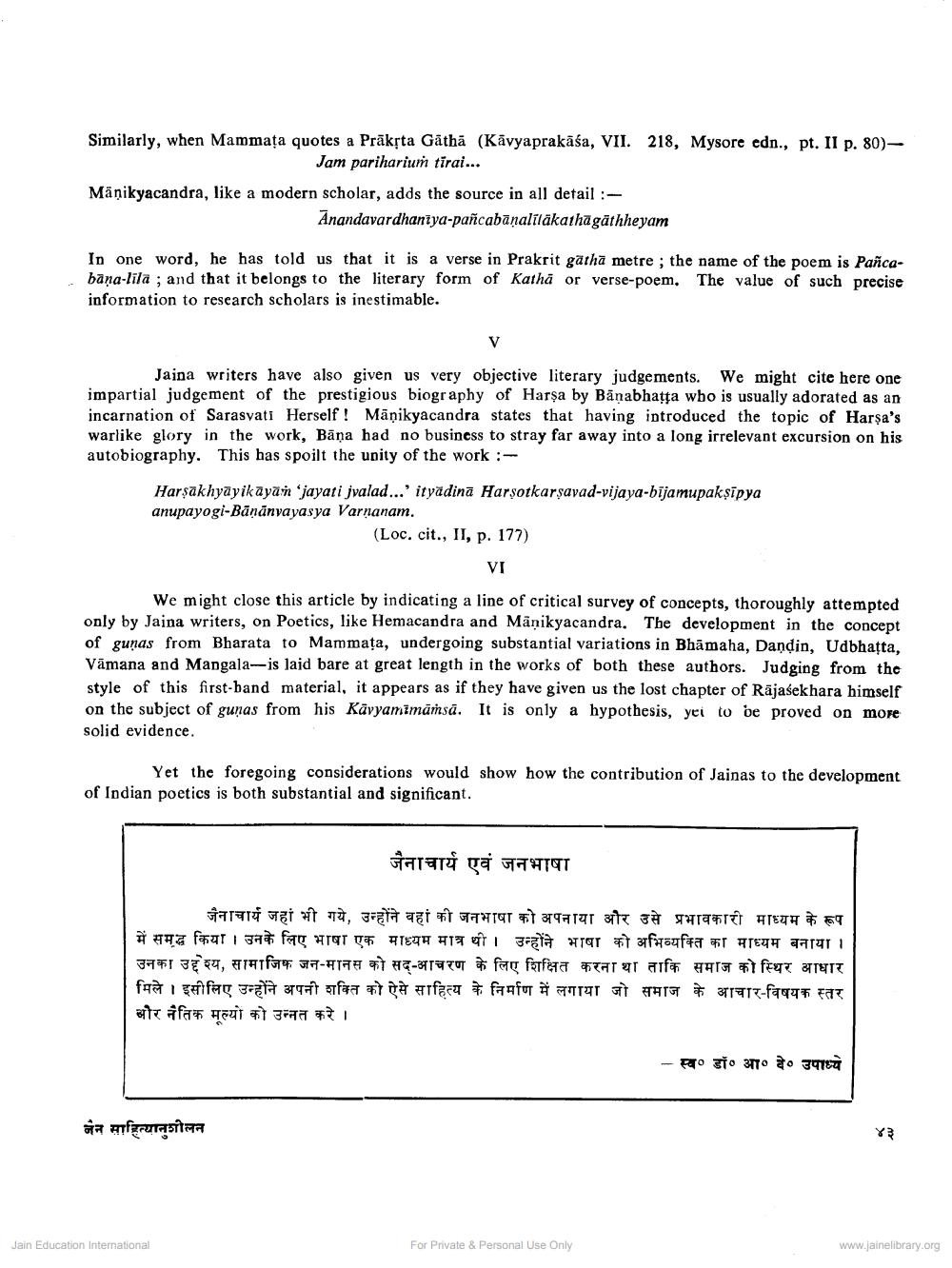________________
Similarly, when Mammața quotes a Prāksta Gāthā (Kavyaprakāśa, VII. 218, Mysore edn., pt. II p. 80)
Jam parihariuṁ tirai... Mänikyacandra, like a modern scholar, adds the source in all detail:
Anandavardhaniya-pañcabānaliläkathāgathheyam
In one word, he has told us that it is a verse in Prakrit gathā metre; the name of the poem is Pañcabana-lila ; and that it belongs to the literary form of Kathā or verse-poem, The value of such precise information to research scholars is inestimable.
Jaina writers have also given us very objective literary judgements. We might cite here one impartial judgement of the prestigious biography of Harsa by Banabhaya who is usually adorated as an incarnation of Sarasvati Herself! Mänikyacandra states that having introduced the topic of Harsa's warlike glory in the work, Bāna had no business to stray far away into a long irrelevant excursion on his autobiography. This has spoilt the unity of the work :
Harşakhyāyikayan jayati jvalad...' ityadina Harşotkarşavad-vijaya-bijamupaksipya anupayogi-Bānānvayasya Varnanam.
(Loc. cit., II, p. 177)
VI
We might close this article by indicating a line of critical survey of concepts, thoroughly attempted only by Jaina writers, on Poetics, like Hemacandra and Manikyacandra. The development in the concept of gunas from Bharata to Mammața, undergoing substantial variations in Bhāmaha, Dandin, Udbhatta, Vämana and Mangala--is laid bare at great length in the works of both these authors. Judging from the style of this first band material, it appears as if they have given us the lost chapter of Rājasekhara himself on the subject of gunas from his Kāvyamimāṁsā. It is only a hypothesis, yet to be proved on more solid evidence.
Yet the foregoing considerations would show how the contribution of Jainas to the development of Indian poetics is both substantial and significant.
जैनाचार्य एवं जनभाषा
जैनाचार्य जहां भी गये, उन्होंने वहां की जनभाषा को अपनाया और उसे प्रभावकारी माध्यम के रूप में समद्ध किया। उनके लिए भाषा एक माध्यम मात्र थी। उन्होंने भाषा को अभिव्यक्ति का माध्यम बनाया। उनका उद्देश्य, सामाजिक जन-मानस को सद्-आचरण के लिए शिक्षित करना था ताकि समाज को स्थिर आधार मिले। इसीलिए उन्होंने अपनी शक्ति को ऐसे साहित्य के निर्माण में लगाया जो समाज के आचार-विषयक स्तर और नैतिक मूल्यों को उन्नत करे ।
- स्व० डॉ० आ० दे० उपाध्ये
जैन साहित्यानुशीलन
Jain Education International
For Private & Personal Use Only
www.jainelibrary.org




